10 Best Herbal Teas For Jaw Clenching
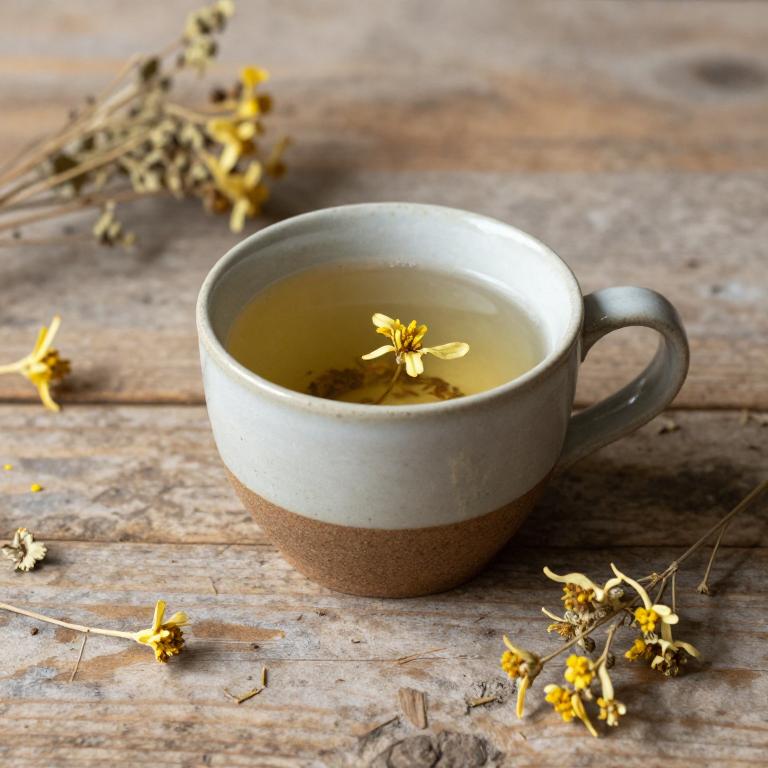
Herbal teas can be beneficial for individuals who suffer from jaw clenching, as they often contain calming properties that help reduce stress and anxiety, which are common triggers for bruxism.
Teas such as chamomile, valerian root, and lavender are known for their soothing effects and may promote relaxation, easing tension in the jaw muscles. These teas work by promoting a sense of calm and improving sleep quality, both of which can alleviate nighttime jaw clenching. Regular consumption of these herbal teas may support overall oral health by reducing the frequency of teeth grinding and jaw discomfort.
However, it is important to consult with a healthcare professional to determine the most suitable herbal options for individual needs.
Table of Contents
- 1. Valerian (Valeriana officinalis)
- 2. Maypop (Passiflora incarnata)
- 3. Licorice (Glycyrrhiza glabra)
- 4. Chamomile (Matricaria chamomilla)
- 5. Echinacea (Echinacea purpurea)
- 6. Lemon balm (Melissa officinalis)
- 7. Ceylon cinnamon (Cinnamomum zeylanicum)
- 8. Heartworts (Leonurus cardiaca)
- 9. Stinging nettle (Urtica dioica)
- 10. Fennel (Foeniculum vulgare)
1. Valerian (Valeriana officinalis)

Valeriana officinalis, commonly known as valerian, is a herb traditionally used for its calming properties and is often incorporated into herbal teas to help alleviate stress and anxiety.
While it is most widely recognized for its effects on sleep and nervous system relaxation, some studies suggest that valerian root may also help reduce jaw clenching by easing muscle tension and promoting relaxation. The active compounds in valerian, such as valerenic acid, are believed to interact with the brain's neurotransmitters, potentially reducing the frequency of bruxism or teeth grinding. Herbal teas made from valerian can be a natural alternative for those seeking to manage jaw clenching without pharmaceutical interventions.
However, it is important to consult with a healthcare professional before using valerian, especially if you have existing health conditions or are taking other medications.
2. Maypop (Passiflora incarnata)
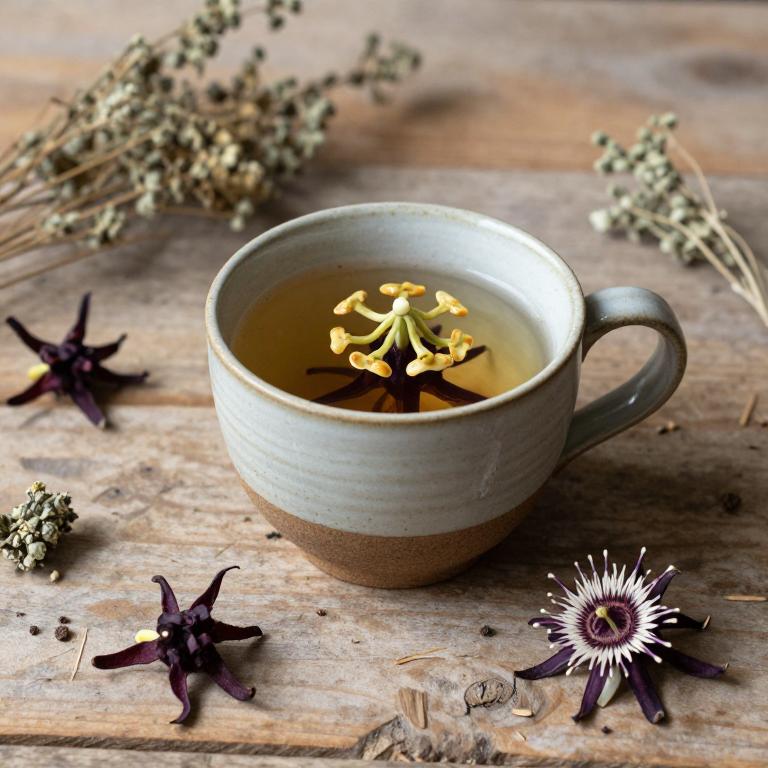
Passiflora incarnata, commonly known as passionflower, is a herbal remedy often used in teas to promote relaxation and reduce stress.
This plant contains compounds like flavonoids and alkaloids that may help calm the nervous system, making it potentially beneficial for individuals who experience jaw clenching due to anxiety or tension. When consumed as a herbal tea, passionflower can help alleviate the physical symptoms of stress, including jaw clenching and teeth grinding. Its mild sedative properties may support better sleep, which is essential for reducing daytime tension that contributes to jaw clenching.
However, it is important to consult with a healthcare provider before using passionflower, especially if you are taking other medications or have underlying health conditions.
3. Licorice (Glycyrrhiza glabra)

Glycyrrhiza glabra, commonly known as licorice root, has been traditionally used in herbal teas to help alleviate symptoms of jaw clenching, often associated with stress or bruxism.
The tea contains compounds like glycyrrhizin, which may have mild anti-inflammatory and soothing effects that can ease muscle tension in the jaw area. Some studies suggest that licorice root may help reduce the frequency of jaw clenching by promoting relaxation of the facial muscles. However, it is important to note that while licorice root may offer some relief, it should not replace professional dental or medical advice for persistent jaw issues.
As with any herbal remedy, it is advisable to consult a healthcare provider before incorporating licorice root tea into a regular health routine.
4. Chamomile (Matricaria chamomilla)

Matricaria chamomilla, commonly known as chamomile, is a popular herbal tea often used for its calming properties.
It contains compounds like apigenin, which may help reduce anxiety and promote relaxation, making it a potential aid for individuals who experience jaw clenching due to stress or tension. Chamomile tea can be consumed regularly to help ease muscle tension in the jaw and reduce the frequency of bruxism, or teeth grinding. Its mild, soothing flavor makes it an accessible and comforting option for those seeking natural relief.
While it is not a cure-all, incorporating chamomile tea into a routine may support overall relaxation and help alleviate jaw clenching symptoms.
5. Echinacea (Echinacea purpurea)

Echinacea purpurea, commonly known as purple coneflower, is a popular herbal remedy often used to support immune health.
While it is primarily recognized for its potential to alleviate cold and flu symptoms, some individuals have reported that echinacea herbal teas may help reduce jaw clenching, possibly due to its calming and anti-inflammatory properties. The tea's mild sedative effects might help ease tension in the jaw muscles, which can be a common cause of bruxism or clenching. However, it is important to note that scientific evidence specifically linking echinacea to jaw clenching relief is limited, and individuals experiencing chronic jaw issues should consult a healthcare professional.
As with any herbal remedy, echinacea should be used with caution, especially for those with allergies or on medications.
6. Lemon balm (Melissa officinalis)
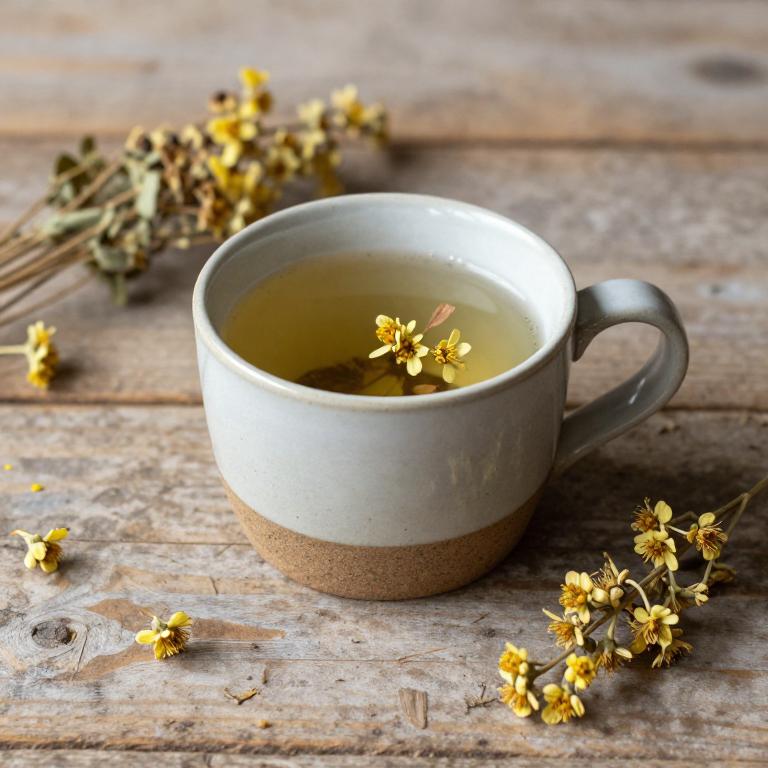
Melissa officinalis, commonly known as lemon balm, is a gentle herbal tea that has been traditionally used to support relaxation and reduce stress.
Its calming properties may help alleviate jaw clenching, a common symptom of anxiety and tension. The tea contains compounds that may promote muscle relaxation, potentially easing the tightness and discomfort associated with bruxism or temporomandibular joint (TMJ) disorders. Regular consumption of lemon balm tea may contribute to overall emotional balance, indirectly improving jaw muscle function.
However, it is advisable to consult a healthcare professional before using it as a treatment for persistent jaw clenching.
7. Ceylon cinnamon (Cinnamomum zeylanicum)
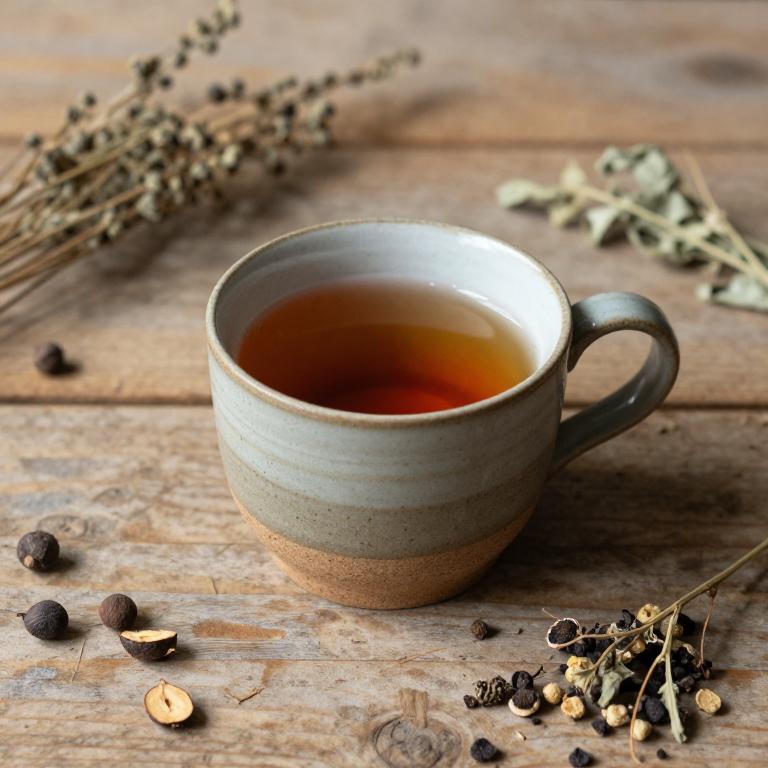
Cinnamomum zeylanicum, commonly known as Ceylon cinnamon, is often used in herbal teas to help alleviate symptoms of jaw clenching.
This spice contains compounds that may have mild muscle-relaxing properties, which can help ease the tension in the jaw muscles. When brewed into a warm tea, cinnamon can promote a calming effect, potentially reducing the frequency of jaw clenching episodes. It is often combined with other herbs like chamomile or peppermint to enhance its soothing benefits.
However, it is important to consult a healthcare professional before using cinnamon tea as a remedy for jaw clenching, especially if the condition is chronic or severe.
8. Heartworts (Leonurus cardiaca)
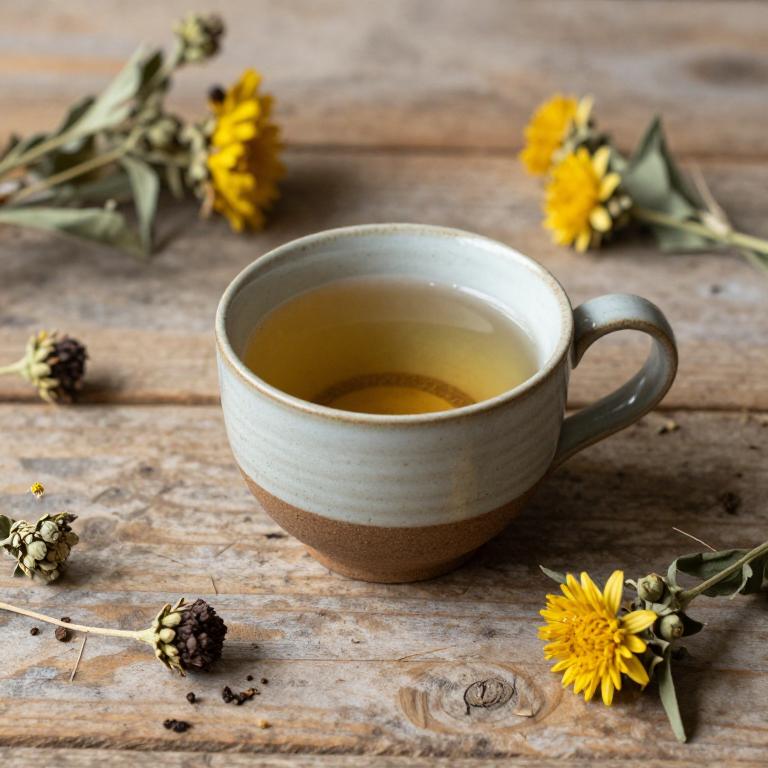
Leonurus cardiaca, commonly known as heartweed or hemlock weed, has been traditionally used in herbal medicine for its potential calming effects on the nervous system.
Some practitioners suggest that leonurus cardiaca herbal tea may help alleviate symptoms of jaw clenching by promoting relaxation and reducing stress, which are common triggers for bruxism. While scientific research on its specific effects on jaw clenching is limited, its mild sedative properties may contribute to overall muscle relaxation, potentially easing the tension in the jaw area. When consumed as a tea, leonurus cardiaca is often combined with other calming herbs like valerian root or chamomile to enhance its soothing effects.
It is important to consult with a healthcare professional before using this herb, especially for individuals with existing health conditions or those taking medications.
9. Stinging nettle (Urtica dioica)

Urtica dioica, commonly known as stinging nettle, has been traditionally used in herbal medicine for its anti-inflammatory and calming properties.
While it is not a direct treatment for jaw clenching, some individuals use stinging nettle tea to help reduce overall stress and muscle tension, which can contribute to bruxism or jaw clenching. The tea contains compounds like histamine and formic acid, which may have a mild sedative effect when consumed in moderation. However, it is important to note that there is limited scientific evidence supporting its effectiveness for jaw-related issues, and it should not replace professional dental or medical advice.
As with any herbal remedy, it is advisable to consult a healthcare provider before incorporating stinging nettle tea into a regular health routine.
10. Fennel (Foeniculum vulgare)

Foeniculum vulgare, commonly known as fennel, is a herbal remedy often used in teas to support oral health and alleviate jaw clenching.
The essential oils in fennel seeds, particularly anethol, have mild sedative properties that may help relax the jaw muscles and reduce tension. Fennel tea can be brewed by steeping the seeds in hot water, and it is often consumed after meals to promote digestion and ease discomfort. Its calming effects may also contribute to reducing stress-related jaw clenching, making it a popular natural remedy for those experiencing bruxism or temporomandibular joint (TMJ) issues.
While not a cure-all, fennel tea can be a soothing addition to a holistic approach for managing jaw tension and improving overall relaxation.